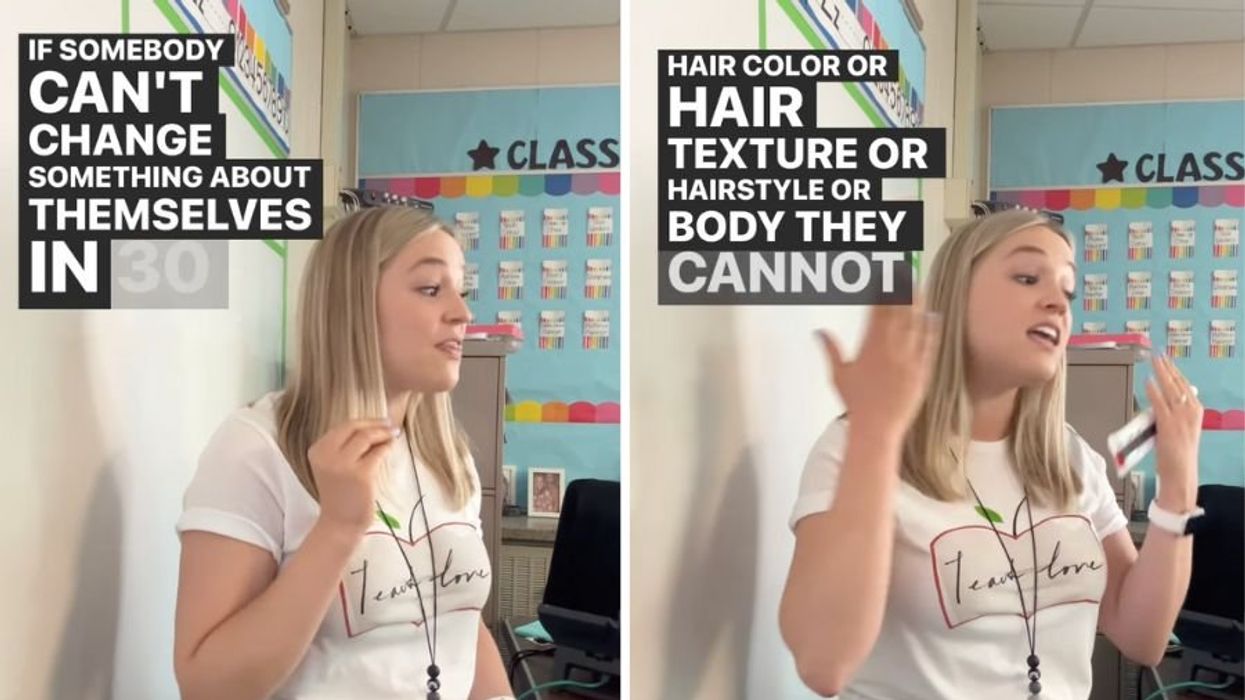
No matter our age, we all want kindness and respect from our peers. No one enjoys being judged or criticized, and negative comments about our appearance sting even if we don’t want them to.
Unfortunately, that doesn’t always stop people from pointing out things they think we should change about ourselves. Issues like hair shaming and body shaming are all too common, despite greater awareness of the hurt they cause.
Elementary school teacher Natalie Ringold shared a lesson about this phenomenon, and though it’s geared toward kids, it’s one a lot of grown-ups could take to heart as well.
Holding a tube of toothpaste, Ms. Ringold explained when it’s appropriate to say something about someone’s appearance and when it’s not.
“If somebody can’t change something about themselves in 30 seconds or less,” she said, “then you shouldn’t be mentioning it to them.”
She gave examples of things that do take 30 seconds or less, such as if someone’s shoe is untied or they have something stuck to their shirt or their fly is unzipped. For those things, it’s okay to tell the person (politely, and in private if it’s something that might embarrass them to point out in front of other people) so they can fix it.
But if it’s something that would take more than 30 seconds to change or isn’t even possible to change, like their hairsytle or hair color or body shape, then that’s not something you should comment on.
“Your words have power,” Ms. Ringold said. Squeezing toothpaste out of the tube, she explained that when you say something about someone that they can’t change in 30 seconds or less, it can be hurtful, and just like toothpaste once it’s out of the tube, you can’t fully take it back once it’s out there.
“You try to apologize, you try to take the words back…and you try to undo what you said, undo what you did. But it’s something they couldn’t change about themselves, and so it get very messy. You can’t totally take those words back. You can’t totally fix it.”
“Your words have power and your words matter,” she said. “If you walk out of this room spreading kindness to the people around you, spreading love to the people around you, that is what truly makes a difference.”
Ms. Ringold shared that she does this lesson with her students on the last day of school because she wants them to remember this concept for the rest of their lives. People in the comments were so appreciative of the message for all ages.
“I think many adults need to hear this message!”
“Exactly my thoughts. A lot of adults need to hear this too.”
“BLESS YOU!!! As a person who was relentlessly racially harassed as a child, I wish this was taught.”
“If they are old enough to be mean on purpose they are old enough to be kind on purpose.”
“This should be required viewing for anyone who wants to join social media.”
“This made me cry. Can I start my college courses with this?”
“I saw you post this and had this conversation with my 4th graders!! It helped so much!!”
Here’s to teachers teaching lessons beyond academics, helping kids learn that their humanity matters just as much as their grades.
